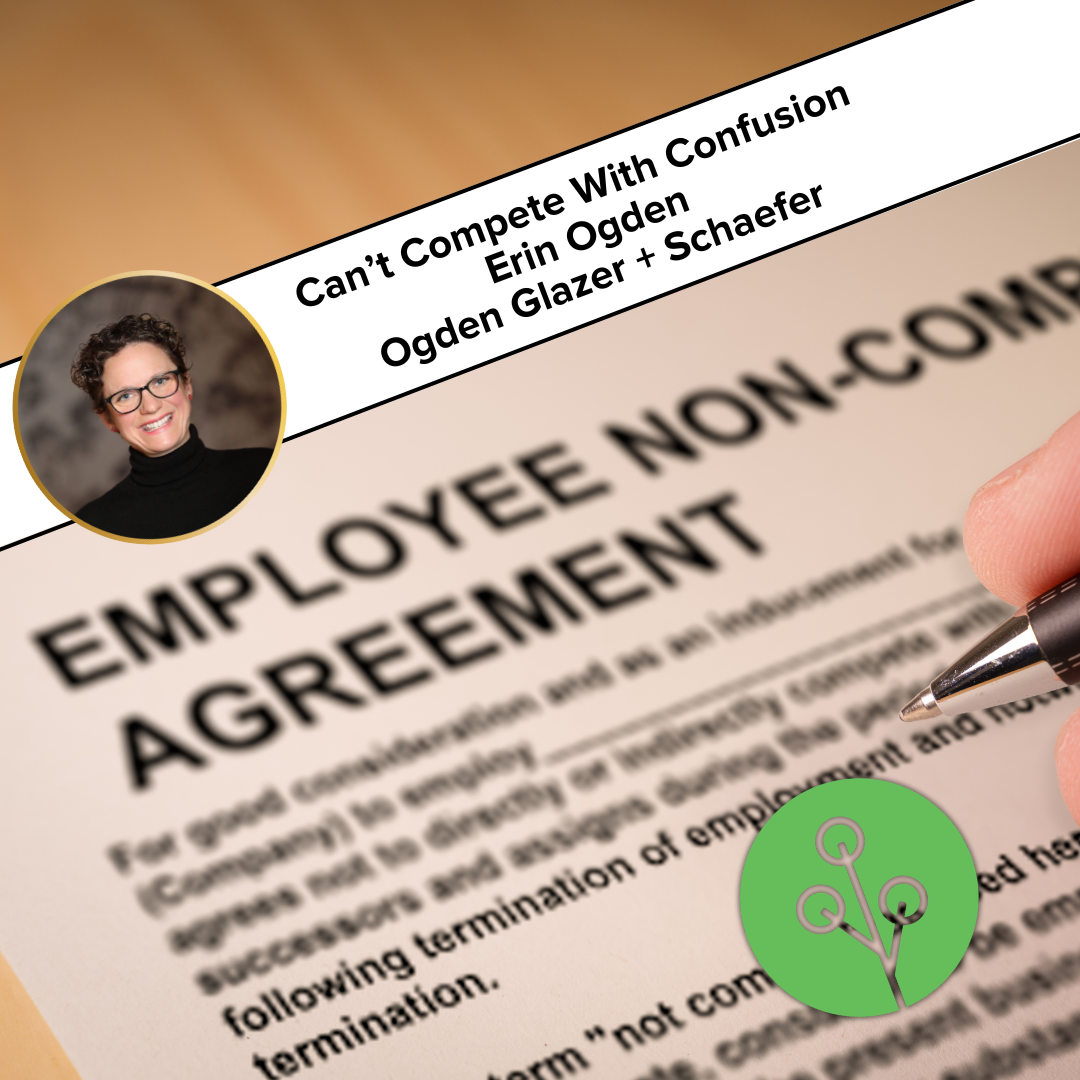Non-compete agreements have been in the news lately because the FTC “banned” them. Yeah, it was in the boring section in the news, but I know I’m not the only one who saw it – as we’ve had questions. First, the FTC issued a final rule. That’s an administrative rule, not a law, but lots and lots of rules have a big impact. Don’t believe me? The IRS, FCC, and FDA are all rule machines. I’m guessing you did your taxes, ignored some commercials, looked at nutritional labels, took some supplements – all of which are impacted by administrative rules. But it does mean they have a different review process and are looked at differently by courts. The final rule will become effective 120 days after publication in the Federal Register, which was April 23. So we have until August to hem and haw before the lawsuits begin.
So what is a non-compete agreement? It is an agreement that employees can’t go work for an employer’s competition. It usually extends for a period after an employee leaves the employer. Employers like them because they help protect their investment. Employers put time and effort into building their employees to useful parts of the business. And employees work hard to be useful. That often means building relationships outside of the business and learning lots of valuable information about the business, its customers, and more. To have someone quit and start with a rival the next day can hurt. Especially if a bunch of customers follow that special employee.
However, they also prevent employees from getting jobs that they are qualified to have. They are stifled in their pursuit of life, liberty, and the pursuit of happiness by having a paycheck for rent, daycare, and silly online purchases. The FTC estimates that the final rule banning non-compete agreements will lead to new business formation growing by 2.7% per year, resulting in more than 8,500 additional new businesses created each year. That is new businesses, not just someone moving jobs.
Under the FTC’s new rule, new and existing non-compete agreements for the vast majority of workers will no longer be enforceable after the rule’s effective date. Existing non-compete agreements for senior executives can remain in force under the FTC’s final rule, but employers cannot enter into any new non-compete agreements, even if they involve senior executives.
In case you think this is completely out of left field, know that state governments have never been all that in love with non-compete agreements. Governments like their citizens to be employed. The trend over the years has been to limit non-compete agreements more and more. Some states have laws on the books restricting non-compete agreements. For example, effective January 1, 2022, Illinois prohibited employers from entering a non-compete agreement with an employee earning less than $75,000 per year, with that salary threshold increasing every five years by $5,000. Any non-compete agreement with an employee below the salary threshold is void and unenforceable. Delaware’s courts have been reigning in the non-compete agreements, too. And they are not alone.
The only thing that I know will be true is that the courts and legislatures will have more to say about this. In the meantime, employers should look at their non-disclosure agreements, their employee handbooks, and their retention strategies. Because the best way for an employee to not work for a competitor is to have them work for you!

